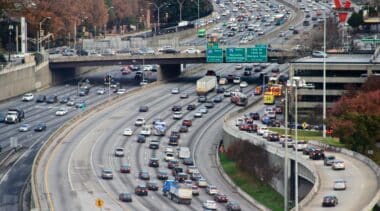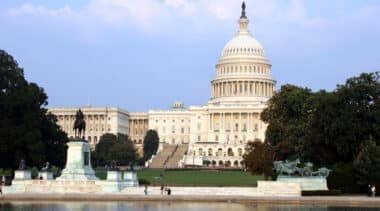-
Examining the increase in traffic fatalities and surge in dangerous driving
This troubling upward trend in dangerous driving during the COVID-19 pandemic must be analyzed to better understand the causes and evaluate the effectiveness of potential safety countermeasures.
-
Child care policy debates need more focus on the prominent role that informal care plays
The informal sector is at least as large and important to parents as a daycare, and its results strain low-income parents disproportionately.
-
Florida improves FRS Investment Plan, but more needs to be done
Florida policymakers should now seize the opportunity to take the necessary step—increasing employee contributions to 6%.
-
Major Florida legislation improves the state’s default defined contribution plan
With this move, Florida continues to demonstrate its commitment to maintaining a retirement system that works for both taxpayers and public workers.
-
Shifting away from gas taxes to modernize Interstate highways
About a dozen states have conducted federally-assisted pilot projects in which motorists and truckers tested mileage-based user fees.
-
How President Biden’s plan for student loan forgiveness will make student debt worse
The president's plan to forgive $10,000 in student debt per borrower has several negative consequences.
-
Consumers say price and availability are barriers to choosing legal cannabis products over illicit products
Consumers say they are far more likely to opt for legal cannabis if the prices are comparable to those of illegal alternatives.
-
Jacksonville’s public pension reform helps the city get an improved credit rating
Moody’s cited the closing of three pension plans to new employees as a factor for the credit rating improvement.
-
The FDA’s proposed ban on menthol cigarettes is based on faulty claims
None of the FDA's claims about the proposed menthol ban hold up.
-
Can the next mayor of LA help the city’s failing school district?
The most pressing problems facing LAUSD are declining enrollment and an increasingly unsustainable budget.
-
NIRS’ assessment of the retirement efficiency gap leaves out some key details
This analysis misses some key facts.
-
Proxy battles are usually an inefficient use of public pension systems’ resources
Public pension funds should prioritize maximizing risk-adjusted returns with as little wasted effort as possible.
-
How states and schools can provide students more transportation options
States can pass laws to allow students to enroll in public schools outside of their zip codes — but those opportunities are meaningful only if families can afford to make the trip.
-
The true depths of the U.S. debt crisis
The massive federal debt accumulation is going to force extremely tough political and policy choices in the coming decades.
-
Bus rapid transit systems need to use transit signal priority
On average, bus travel times are reduced by 15% and key intersection delays are reduced by 50% when using transit signal priority.
-
Land-use regulations drive up the cost of housing and hamper economic mobility
Excessive regulations are needlessly inflating housing prices and hurting workers and families.
-
The difficulties of assigning ESG ratings
The problems with public pension systems and private companies trying to create environmental, social, and corporate governance (ESG) risk ratings.
-
California community colleges are losing students
If students don’t return soon, community colleges will face a financial crisis.

















